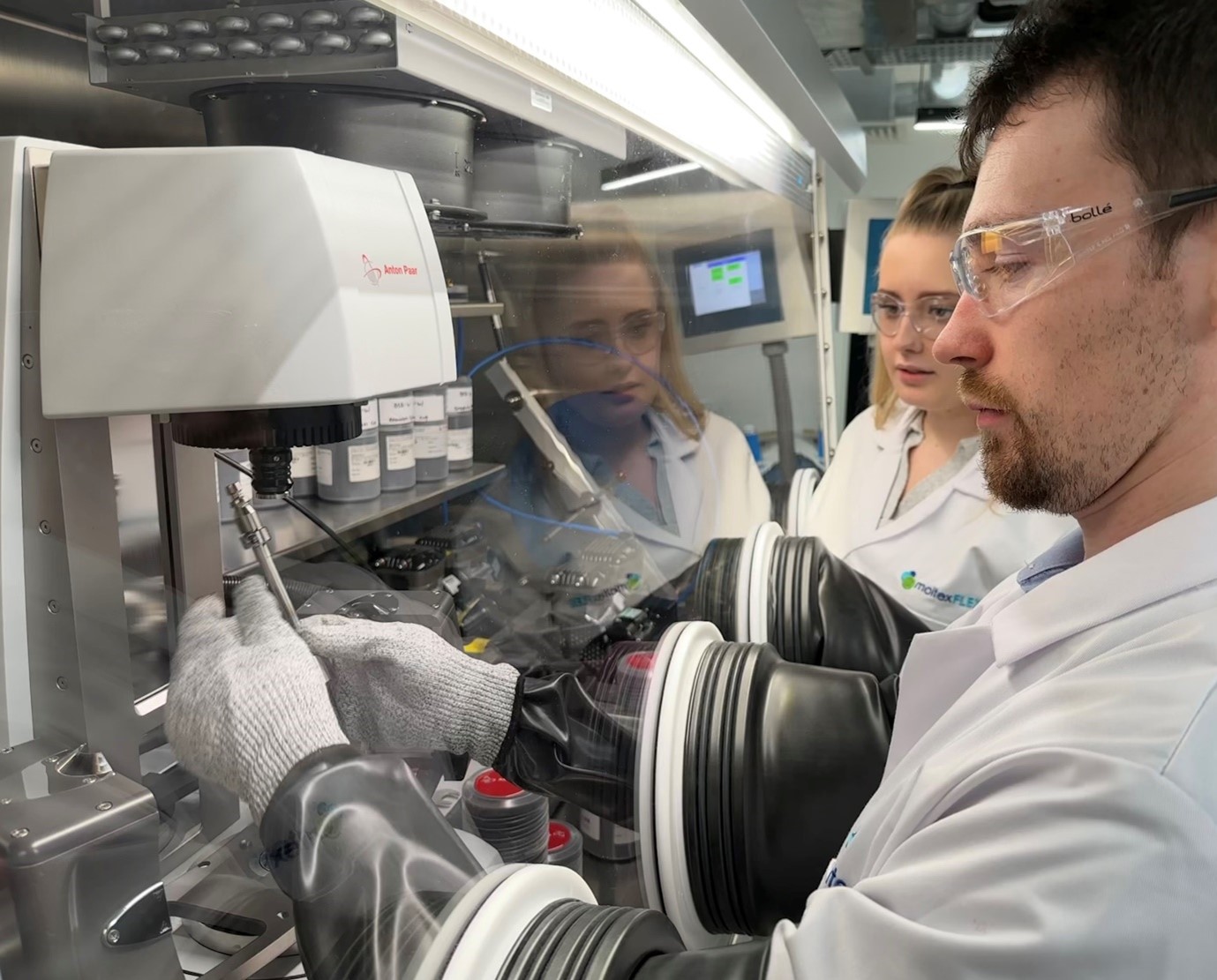MoltexFLEX has achieved what the company believes is a UK first – it has successfully commissioned technology to measure the viscosity and density of molten salts at temperatures up to 1,000°C.
The advanced nuclear power and energy storage company, alongside world-leading scientific instruments manufacturer Anton Paar, has installed a rheometer inside a climate-controlled inert gas glovebox at the MoltexFLEX laboratory in Warrington, Cheshire. The innovative test rig is now operational and has started providing data.
Rheometers measure the viscosity and density of different materials at varying temperatures. MoltexFLEX is using its new rheometer to test the fluoride salts the company is planning to use as the fuel and coolant for its novel FLEX reactor.
“The FLEX reactor relies on natural convection rather than pumps to circulate the molten salt coolant, and this is sensitive to viscosity and density, so accurate information of these parameters at different temperatures is vital,” said MoltexFLEX lead chemist Phil Quayle. “This one-of-a-kind installation will go a long way towards delivering a FLEX reactor this decade.”
There is little available information on how the kinds of fluoride salts used in the FLEX reactor behave at high temperatures. Few companies and research institutions have investigated their density and viscosity, as this data is difficult to gather reliably as the salt can easily become contaminated by oxygen and water, which affects its material properties.
Installing the rheometer inside the glovebox, which is filled with pure nitrogen gas, solves this problem and enables MoltexFLEX’s scientists to get accurate results. The team has calibrated the rheometer with lower-temperature chloride salts and is now generating viscosity data for the FLEX salts.
Huge step forward
“Bringing the rheometer capability in-house is a huge step forward in MoltexFLEX’s analytical capability. It enables us to ‘try fast and learn fast’. We can rapidly develop experimental protocols and generate good data sooner,” Quayle added.
“The team from Anton Paar have been fantastically supportive in making this installation possible,” said MoltexFLEX research chemist Dr James Moffat, who led the rheometer commissioning process.
“As far as we and Anton Paar know, no-one in the UK has installed a high-temperature rheometer inside a climate-controlled environment like this,” said chemist Beth Mapley, who is developing procedures for use with surrogate uranium fluoride fuel salt . “It’s really exciting to be able to work on such cutting-edge research,” she added.
Ana-Maria Fuentes, a sales engineer from Anton Paar, said: “This has been without a doubt one of our most challenging installations. MoltexFLEX are very ambitious and asked us to do something out of the ordinary. We successfully installed a fully functional MCR 302e rheometer with temperature capabilities up to 1,000°C inside an inert glovebox. It has been a pleasure collaborating with the team at MoltexFLEX.”
www.moltexflex.com
